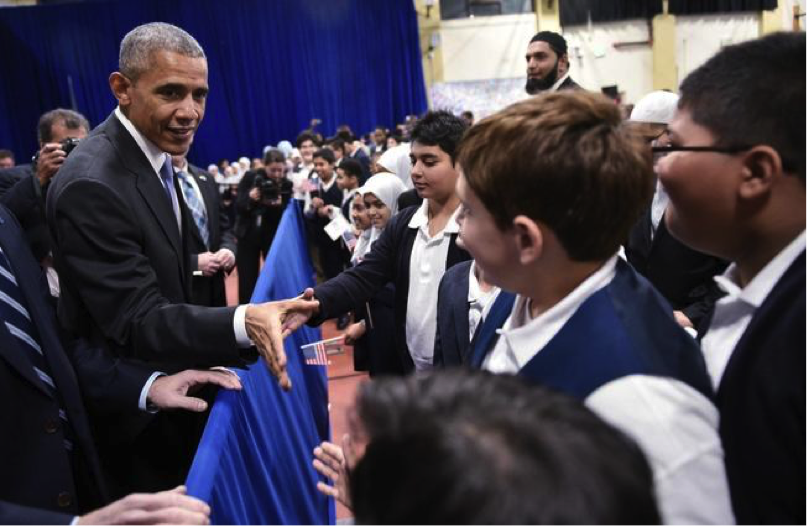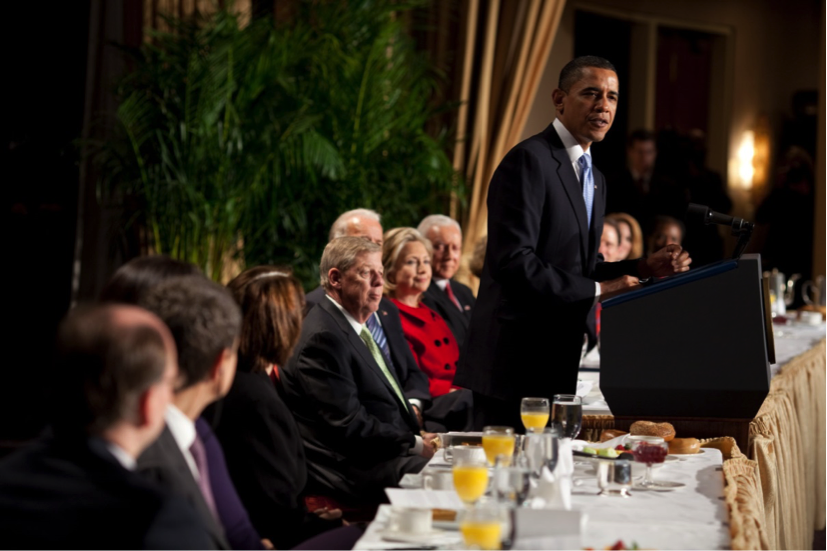During the first week of February, President Barack Obama spoke to Muslim families at the Islamic Society of Baltimore and leaders and others of many faiths at the White House Prayer Breakfast. On both occasions two underlying themes were tolerance and appreciation.

President Obama during visit to Mosque
It is sad that in 2016 it should still be so timely for the President of the United States to speak to Muslim children about their belonging in our nation; to still need to address a segment of our society, or what Obama referred to as a part of the fabric of our society, and assure them that they are safe and wanted and appreciated here. Obama said he wanted to thank Muslims for serving their communities because he felt that they didn’t hear thanks often enough. In fact, most recently the very acceptance and legality of their presence has been put into question, as if we were living in an authoritarian state where a person can be punished for his or her religious beliefs. Obama’s words were a beautiful contrast to the ugly rhetoric that has been tossed around by campaigners thoughtlessly throughout the most recent months. Obama reminds the listeners that the Prophet Muhammad taught something familiar to Christians, “Let him treat people the way he would love to be treated.” It is a idea that seems to have been cast aside, as state governors boast of not allowing Syrian refugees into their states.

President Obama at the National Prayer Breakfast
At the Prayer Breakfast, President Obama spoke about those who have “hijacked religion.” In other words, they have used religion to justify violent actions, that in reality are more politically motivated. But terrorists are not the only ones who have hijacked religion. Recent campaigners have used it as a political weapon as well, perhaps not a war with physical injuries yet, but a war of words, where innocent Muslims feel their security and well-being here in the United States might be threatened. As Obama said at the Mosque “All of us have the task of expressing our religious faith in a way that seeks to build bridges rather than to divide.” Non-Muslims in particular, at this point have the need to reach out and repair the bridges that have been damaged verbally in the past months. Obama said at the Prayer Breakfast, “..in fact, we defend the legal right of a person to insult another’s religion, we’re equally obligated to use our free speech to condemn such insults–and stand shoulder to shoulder with [those] who are targets…”
The take-away for me is this: I talk to very few Muslims here in Utah, although I know there are many at this university. I become complacent because in my mind I am doing what Obama has urged us to do. But how can I be even better? Standing shoulder to shoulder means allowing others to feel the strength that we have to give, and being obligated to openly condemn hateful speech requires courage and preparation.
Megan Raines, Utah Valley University student

